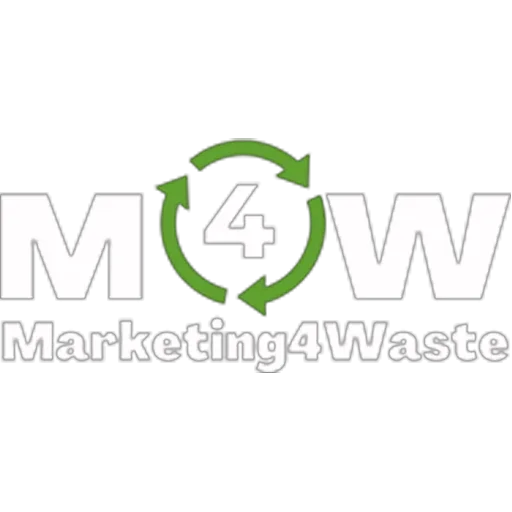Increase the Revenues of Your Waste Company With the Tips Shared in Our Blog Articles

How Successfully Passing Your Waste Management Legacy to the Next Generation
As small business owners navigate the complexities of the modern market, the transition of leadership from generation to generation presents both a significant challenge and a profound opportunity.
The key to a seamless transition lies in meticulous planning and structuring, not just in leadership but in all aspects of the business – from operational processes to marketing strategies.
This comprehensive guide delves into the importance of planning for generational transitions in family-owned businesses, emphasizing the crucial role of structured processes and effective marketing in ensuring longevity and success.
Understanding the Stakes: Why Transition Planning Matters
Legacy and Continuity
For many small business owners, the primary motivation to pass the business to their children is preserving legacy and continuity. In industries like waste management, the business is not just a source of income; it’s a pivotal contributor to community health and environmental sustainability.
A well-planned transition ensures that the family's values and commitment to service are upheld, safeguarding the business's legacy.
Financial Security and Stability
Transitioning a business to the next generation also offers financial security. However, this can only be achieved if the business continues to thrive.
Proper planning ensures that the new generation is ready to take over the reins, and equipped with the necessary skills and knowledge to maintain financial stability and growth.
Addressing Common Fears
Owners often worry about their children's capability to handle the business, adapt to market changes, preserve the company's reputation, and manage family dynamics effectively. A structured transition plan can alleviate these fears, including training and mentorship.
The Pillars of a Successful Transition
Structuring Business Processes
A business needs to be structured methodically in all its parts, ensuring that each function, from operations to finance, works efficiently and cohesively.
This structure is even more crucial in a waste management company where operational efficiency, regulatory compliance, and environmental responsibility are paramount.
Operational Excellence
Ensuring operational processes are well-documented and streamlined allows for smoother transitions. This includes having standard operating procedures (SOPs), a clear organizational structure, and a well-trained workforce.
Financial Management
Robust financial processes are critical.
This includes everything from budgeting and accounting to financial reporting and risk management.
The next generation must understand the financial health of the business and how to sustain it.
Regulatory Compliance
Staying abreast of regulatory requirements is crucial in waste management. The transition plan should include a framework for regulatory compliance and strategies to adapt to policy changes.
Emphasizing Marketing and Sales
The Role of Marketing
In today’s competitive landscape, having a well-structured marketing process is vital for customer acquisition and retention.
The transitioning generation must understand the importance of branding, market positioning, and digital marketing strategies.
Customer Acquisition
Marketing strategies should focus on identifying and reaching the target market effectively.
This involves understanding customer needs, market trends, and leveraging digital platforms for outreach.
Customer Management
Once customers are acquired, managing them effectively is key to retention. This involves excellent customer service, feedback mechanisms, and engagement strategies.
The Importance of Sales
At the heart of every business's success is its ability to sell.
The new generation must be adept at maintaining existing sales strategies and innovating and adapting sales approaches to meet changing market demands.
Training and Mentorship
A crucial component of the transition plan is ensuring the next generation is well-prepared. This involves both formal education and hands-on training within the business.
Mentorship programs, where the current generation imparts knowledge and experience, are invaluable.
Navigating Challenges
Adapting to Change
The business landscape constantly evolves, and adapting to these changes is critical.
The new generation must be equipped to handle technological advancements, shifts in consumer behavior, and regulatory changes.
Managing Family Dynamics
Family businesses often face unique challenges in managing relationships and expectations.
Open communication, clear role definitions, and professional conflict resolution mechanisms are essential.
Competing in the Market
Understanding and responding to competition is crucial.
The next generation should be prepared to conduct market analyses, innovate, and differentiate the business to maintain a competitive edge.
Conclusion
The transition of a family business to the next generation is a journey filled with opportunities and challenges. Planning this transition is not just about ensuring business continuity; it’s about preparing the business to thrive.
Structuring business processes, emphasizing a robust marketing strategy, and preparing the next generation through training and mentorship are key to this success.
With careful planning and execution, family businesses can continue to be a testament to enduring legacy, resilience, and growth across generations.
Do you want more?
Text me at +1 (727) 307-2695
All the best
Sam


© 2026 Marketing4waste - All Rights Reserved,
Marketing4Waste is a brand of MiM MarketingInterimManagers LLC
+1 801 804 5730

